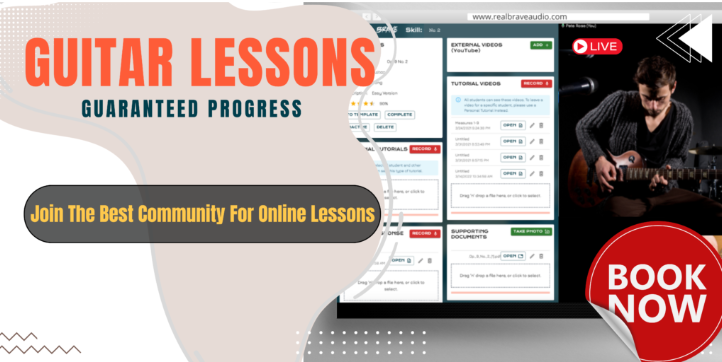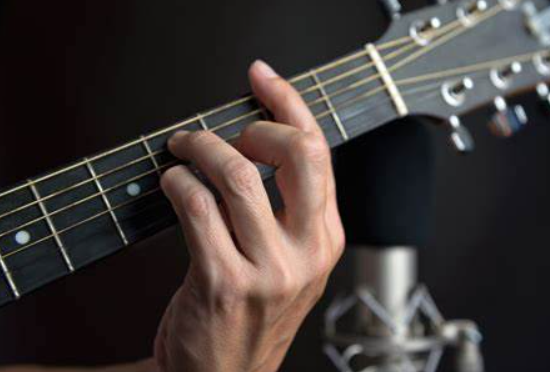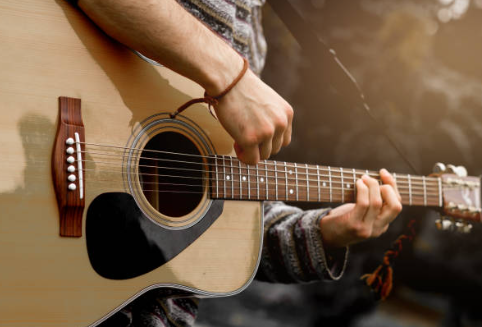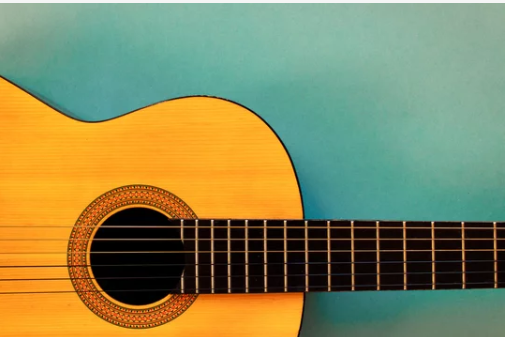Fundamentals of Guitar Scales for Beginners – Easy Guide

Learning to play the guitar can feel overwhelming when faced with the vast expanse of frets, strings, and notes. For many beginners, the fretboard seems like a maze—unfamiliar and intimidating. But there’s a secret weapon to help you conquer this challenge: guitar scales. Understanding and practicing guitar scales can transform your playing, helping you navigate the fretboard with confidence and ease. In this blog, we’ll explore why scales are essential, how they work, and how you can start using them to unlock the fretboard.
What Are Guitar Scales?
A guitar scale is simply a sequence of notes arranged in a specific order of intervals. These intervals determine the unique sound or “mood” of a scale—whether it’s happy (major), sad (minor), exotic, or jazzy. By practicing guitar scales, you’re essentially learning the musical language of the fretboard. This knowledge not only makes playing melodies easier but also improves your improvisation, songwriting, and understanding of music theory.
The most common guitar scales for beginners include:
- Major Scale: The foundation of Western music and a must-learn for all guitarists.
- Minor Scale: Adds a darker, more emotional tone.
- Pentatonic Scale: Perfect for beginners and widely used in rock, blues, and pop music.
Why Scales Are the Key to Unlocking the Fretboard
1. Understand the Layout of Notes
Guitar scales reveal the relationship between notes on the fretboard. As you practice scales, you’ll begin to notice patterns and shapes that repeat across the strings. These patterns act as a roadmap, showing you where to find notes and how to move between them.
2. Improve Your Technique
Practicing scales helps develop finger strength, speed, and coordination. Over time, this leads to smoother transitions between notes and better overall technique. Scales also teach you proper finger placement and hand positioning, which are crucial for clean and accurate playing.
3. Boost Confidence in Improvisation
Scales are the backbone of improvisation. Whether you’re jamming with friends or crafting a solo, scales provide the foundation for creating melodies that sound intentional and musical.
4. Enhance Your Ear Training
When practicing scales, you’re training your ear to recognize different intervals and note relationships. This skill is invaluable for playing by ear and transcribing songs.
Getting Started with Scales
1. Learn the Major Scale Pattern
The major scale is the best starting point for beginners because it forms the basis of most music. The most common pattern for the major scale on guitar starts on the 6th string (low E string) and follows this sequence of intervals:
- Whole, Whole, Half, Whole, Whole, Whole, Half.
Here’s an example in the key of G:
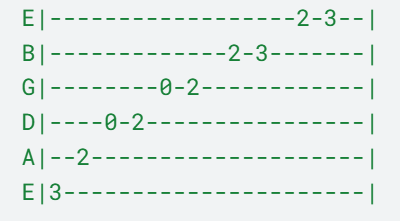
Practice this pattern slowly, focusing on accuracy and proper finger placement.
2. Explore the Pentatonic Scale
The pentatonic scale is another beginner-friendly scale that’s easy to memorize and sounds great in almost any context. The minor pentatonic scale in A (a popular starting point) looks like this:

Start with small sections of the scale, then gradually connect the patterns across the fretboard.
3. Practice with a Metronome
Consistency is key when practicing scales. Use a metronome to ensure your timing is steady. Start slow, focusing on clean execution, then gradually increase your speed as you become more comfortable.
4. Connect the Dots
Once you’ve mastered individual scale patterns, try connecting them across the fretboard. For example, link different positions of the G major scale or the A minor pentatonic scale. This will help you break out of “box” patterns and move freely across the neck.
5. Apply Scales to Music
Scales become more meaningful when applied to real music. Try using a scale to improvise over a backing track or to create your own melody. This makes practicing more fun and helps solidify your understanding of the scale’s sound and feel.
Tips for Success
- Be Patient: Learning scales takes time and consistent effort. Don’t rush—focus on accuracy before speed.
- Use All Your Fingers: Proper finger usage is essential for building technique and minimizing unnecessary movement.
- Practice Daily: Even 10-15 minutes a day can make a significant difference over time.
- Experiment with Different Keys: Don’t get stuck in one key. Practicing scales in different keys will improve your versatility and familiarity with the fretboard.
The Bigger Picture
Scales are more than just finger exercises; they’re a gateway to understanding the language of music. By practicing scales regularly, you’ll gain the tools to explore new sounds, write your own music, and play with confidence. The fretboard will no longer seem like a confusing maze but rather a familiar playground for creativity.
So, grab your guitar, pick a scale, and start unlocking the fretboard today. The journey might seem challenging at first, but the rewards are well worth the effort. Happy playing!
Interested in taking your guitar skills to the next level? Click the below and book a free lesson with us! We’re committed to helping you express yourself freely on the guitar without endless scales and theory. Happy playing!
Author: Daniel Powers Jr, the founder of Real Brave™, serves as the chief inspiration to thousands of students in the Real Brave music instruction program. He’s also the visionary behind PracticePad™, an online platform for live one-on-one online music lessons, lesson tracking, and scheduling. Beyond his entrepreneurial pursuits, Daniel leads a non-profit organization that provides formerly homeless children with access to music education, making a profound impact on their lives. His unwavering dedication to music, innovation, and education continues to inspire individuals to reach their fullest potential while creating positive change in communities. Follow Real Brave on all the socials:
Find us on Instagram: https://www.instagram.com/realbraveaudio/
Find us on Youtube: https://www.youtube.com/@realbraveinc
